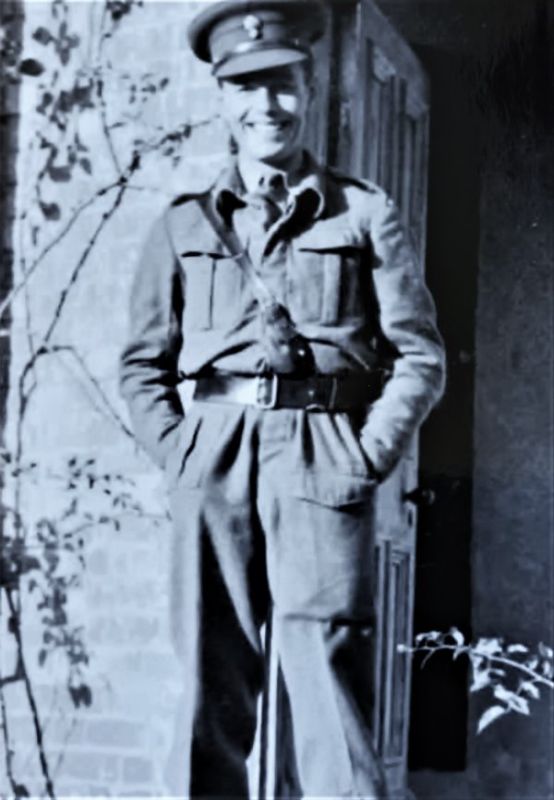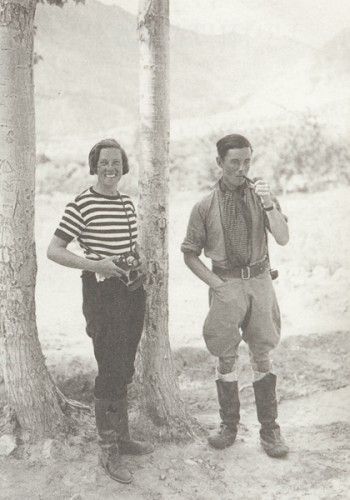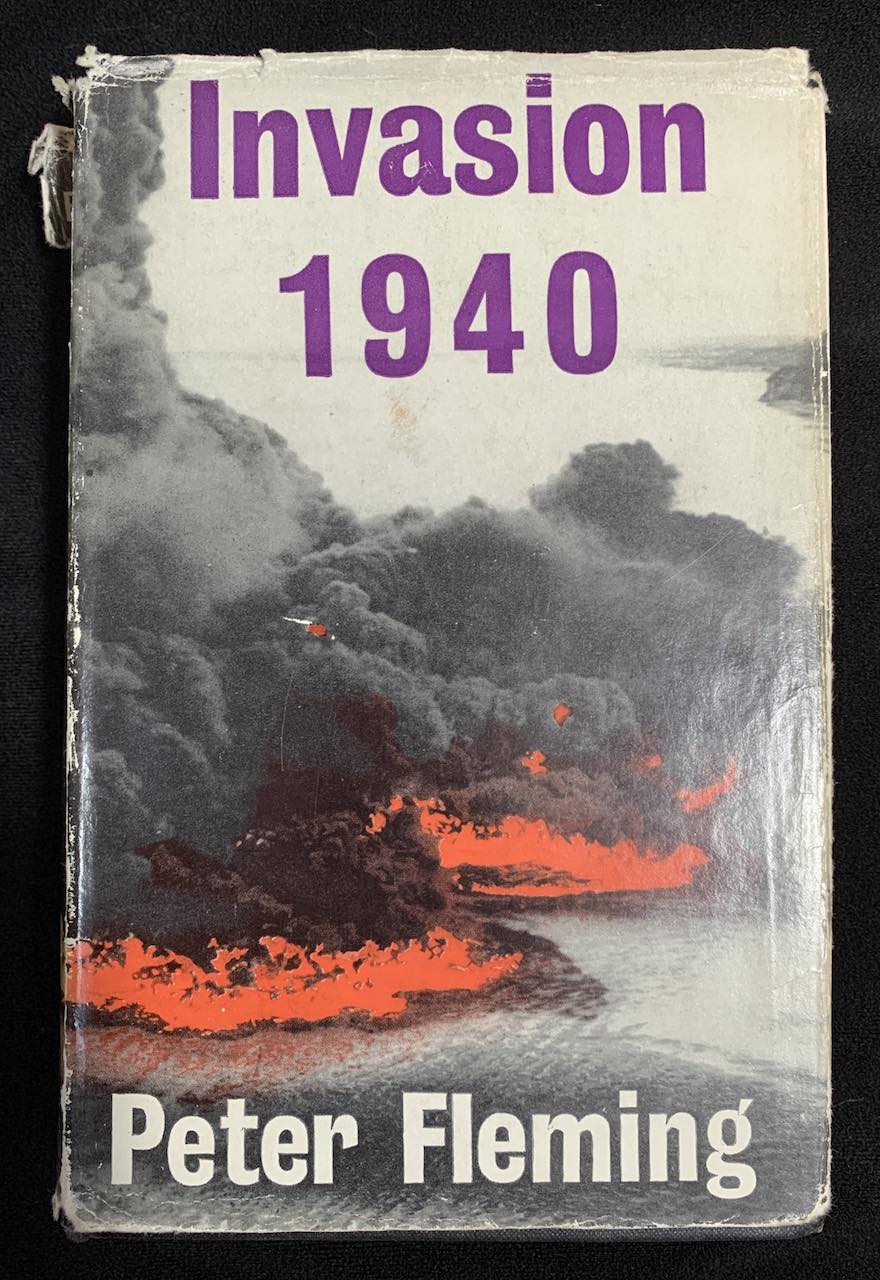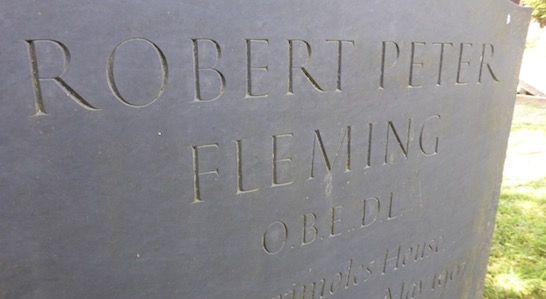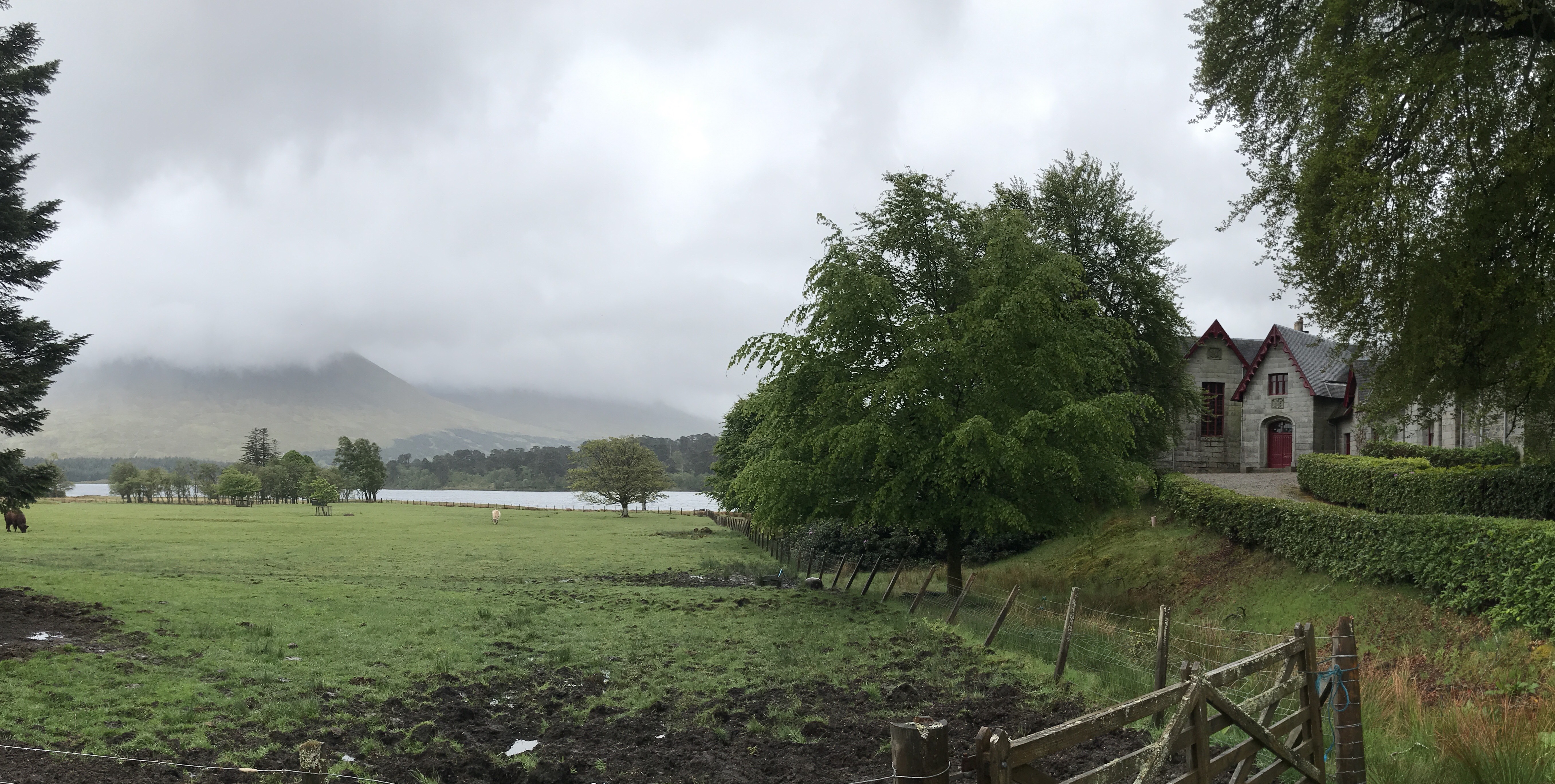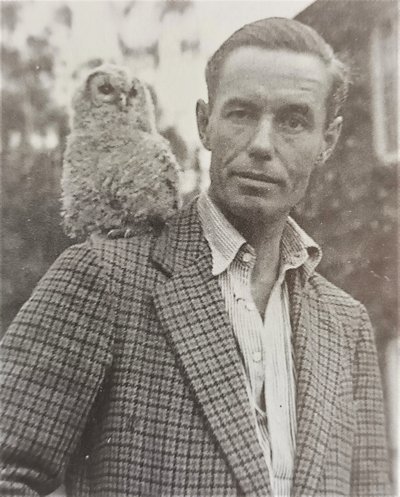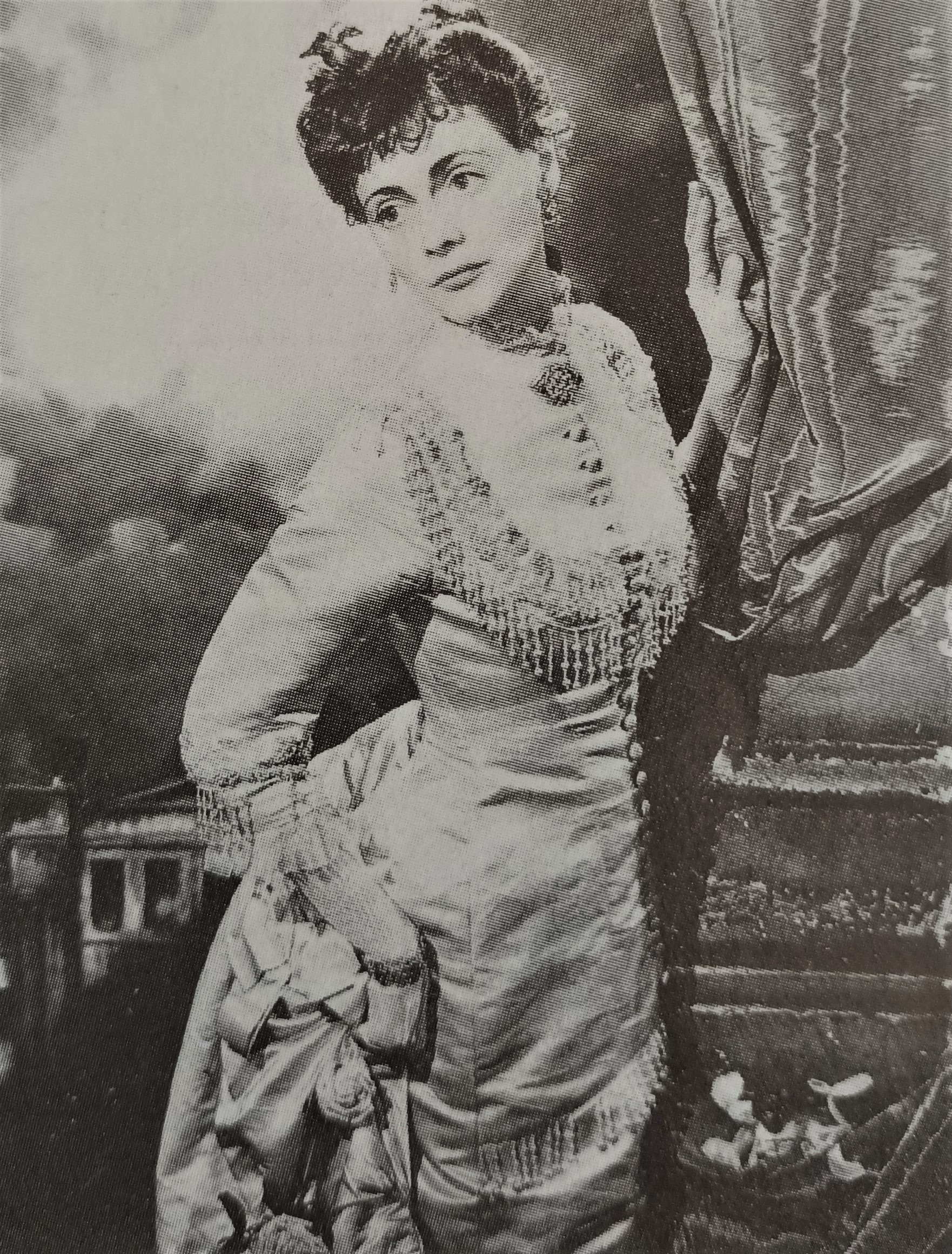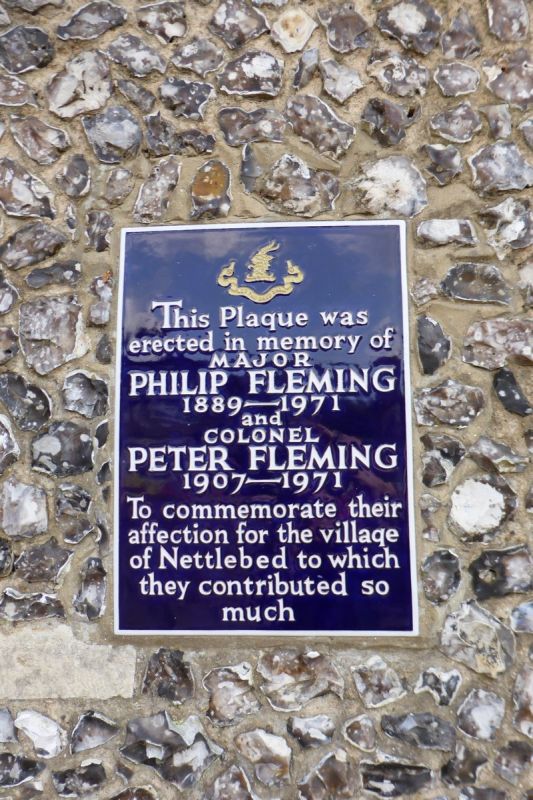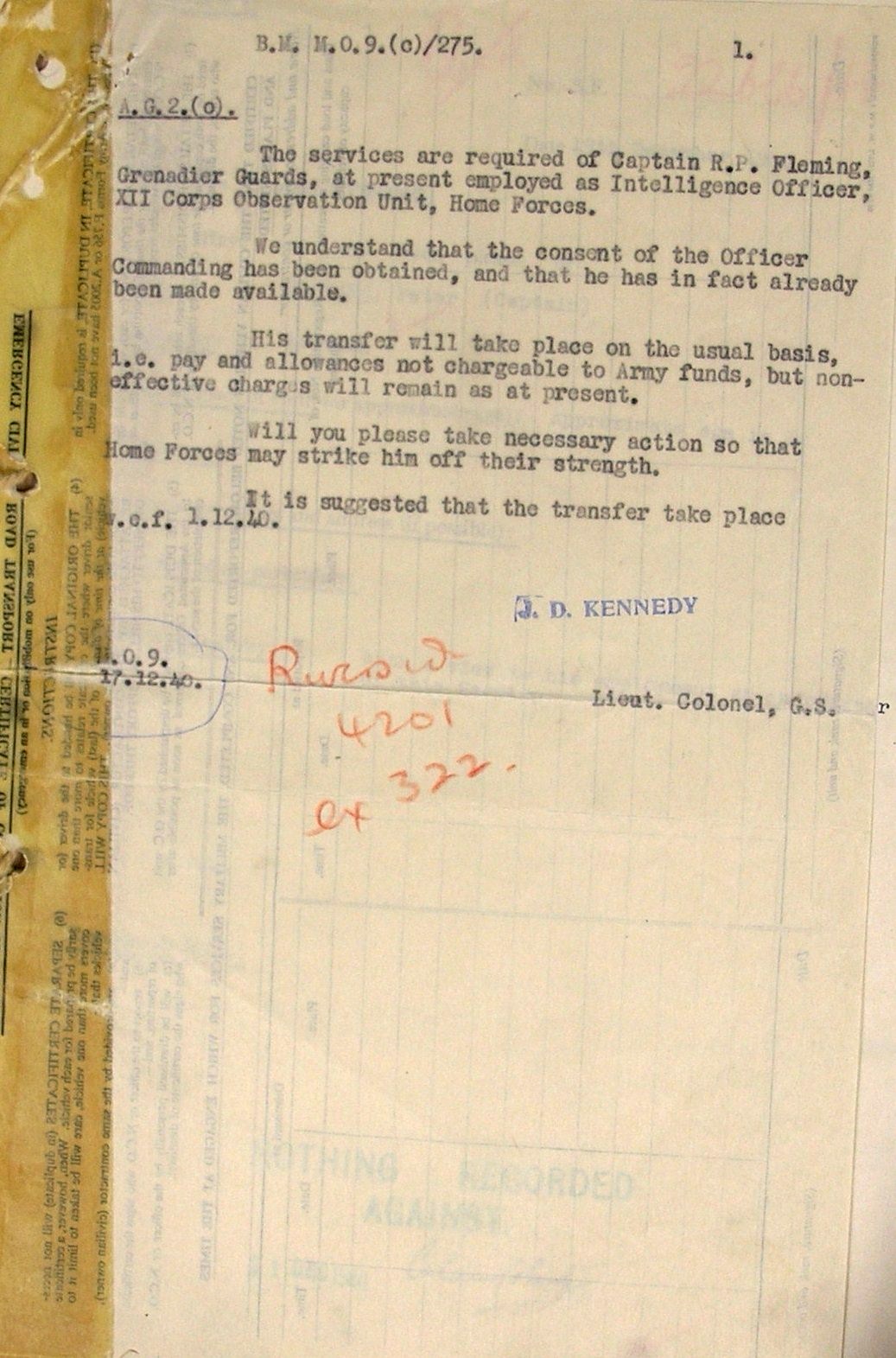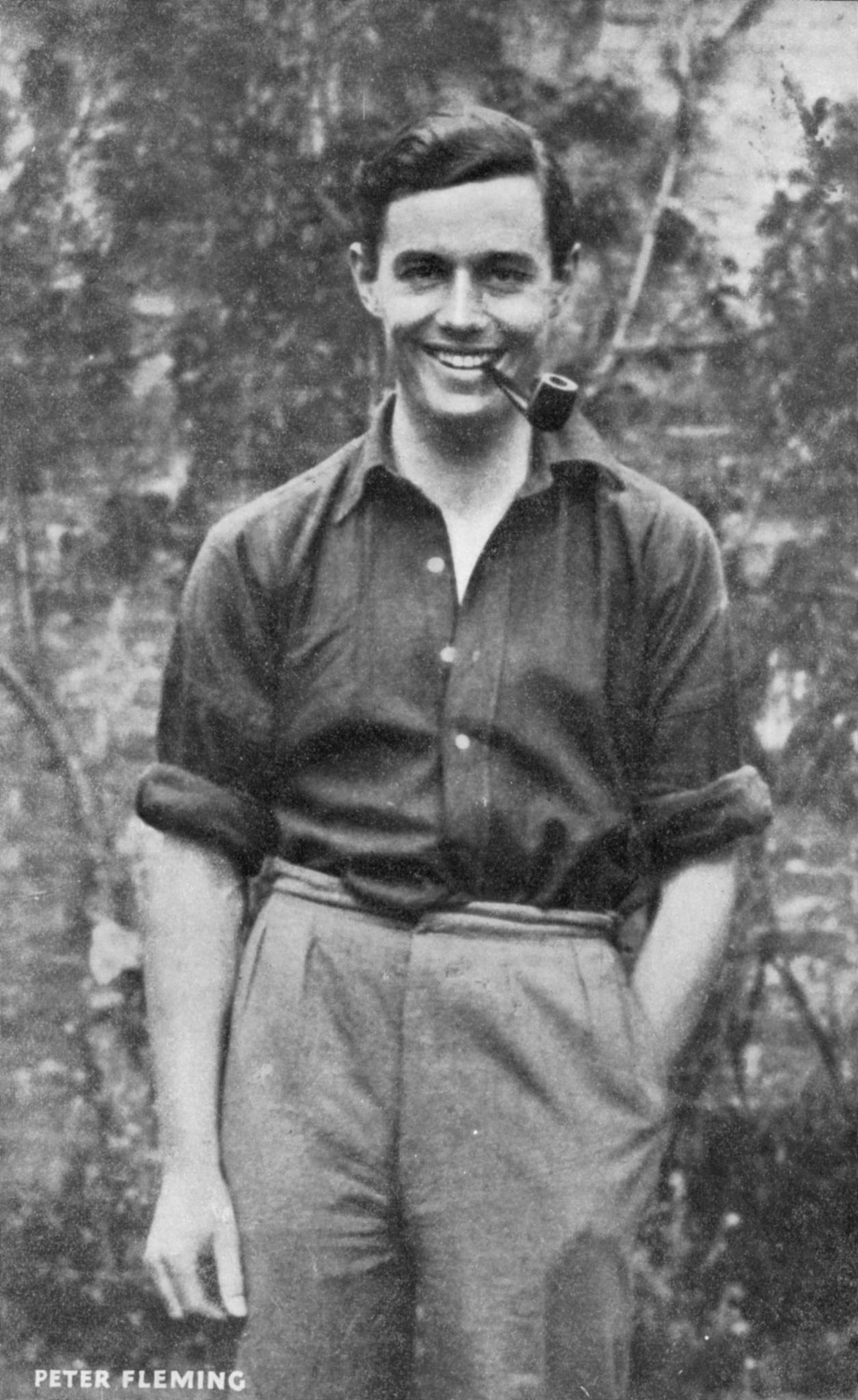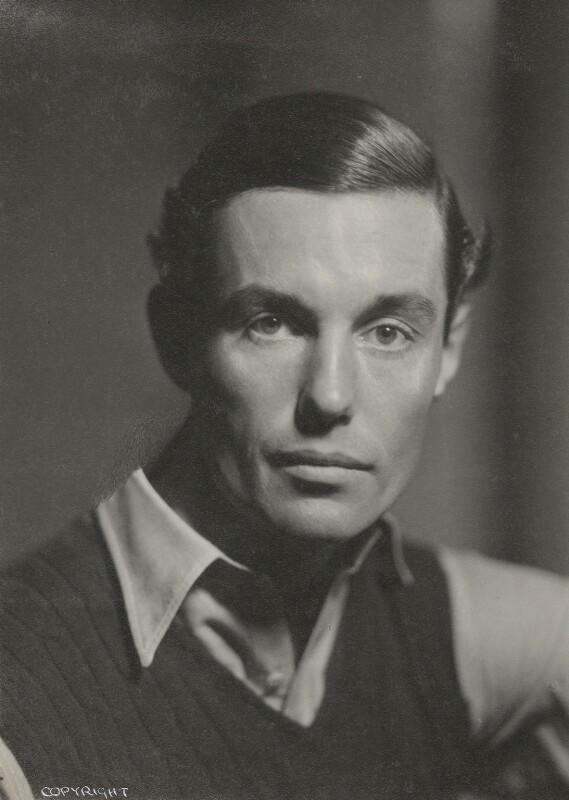Peter Fleming was the eldest of four sons of the barrister and MP Valentine Fleming, who was killed in action in 1917, having served as MP for Henley from 1910 and his wife Evelyn Beatrice Sainte Croix Rose. Peter's younger brother was Ian Fleming, author of the James Bond books.
Fleming was educated at Eton College, where he edited the Eton College Chronicle. The Peter Fleming Owl is still awarded every year to the best contributor to the Chronicle.
He graduated with a first-class degree in English from Christ Church, Oxford. In 1932 he fell in love with the actress Celia Johnson (1908–1982), best known for her role in the film Brief Encounter. They were married on the 10th December 1935.
During the war Celia, as well as acting and keeping home had worked as a driver and a switchboard operator for the Henley branch of the Women’s Auxiliary Police Corps for which she was given a medal. This was followed later by the CBE and later the DBE for her theatrical performances. The Queen Mother attended the celebratory dinner at their home Merrimoles.
Peter was working as assistant literary editor at The Spectator when he came upon a small ad that would catapult him to fame. The notice, in The Times classifieds, read: 'Exploring and sporting expedition, under experienced guidance, leaving England June, to explore rivers Central Brazil, if possible ascertain fate Colonel Fawcett; abundance game, big and small; exceptional fishing; Room Two More Guns.' Shooting was Peter's greatest passion; solving the mystery of Colonel Fawcett, who had disappeared in the jungle in 1925 while searching for a fabled lost city, would be the icing on the cake. Although the expedition failed, the resulting book, Brazilian Adventure, made Peter's name.
In February of 1935 he faced, along with Ella Maillart, a voyage of seven months in China, the Beijing to Kashmir, through the deserts of ‘Central Asia (at that time he was already an agent of’ MI6). After that trip, in 1936, he published News from Tartary and One’s Company, and Ella Maillart.
On 3rd January 1939 Peter’s wife (Celia Johnson) gave birth to their son Nicholas Peter Valentine Fleming known as Nichol Fleming.
After the war he returned home to his estate and become Squire of Nettlebed in Oxfordshire. His home ‘Merrimoles’ needed refurbishing and he began to put it in order. His wife Celia continued to be a successful actress. In 1946 a daughter was born they called ‘Kate’, followed by another they named ‘Lucy’ the following year. Peter continued to play the country gent with the care and upkeep of the farm and the woodland. He broke his pelvis riding, and often went to Scotland to go shooting, usually without Celia.
Having been out of uniform for a couple of years he decided in 1948 to enrol in the local Territorial Army Unit – 4th Battalion the Ox and Bucks Light Infantry as a Lieutenant.
By 1951 he had regained the rank of Lieutenant Colonel and taken over command of the Battalion. In addition in 1952 he was appointed High Sheriff of Oxfordshire. He relinquished command of the battalion in 1954.
Although Peter had never stopped writing articles for the Times and the Spectator he now started writing books again. Another 11 followed in the next decade or so.
In 1960, he was Appointed Deputy Lieutenant of Oxfordshire.
On the 18th August 1971, Peter Fleming was in fine spirits with a shooting party at his Uncle's home Black Mount, Bridge of Orchy, Argyllshire, Scotland accompanied by his dog ‘Chort’. They had enjoyed themselves for several days. The guns were stretched out in line approaching Creag Dhubh – the Black Rock – on a warm day. The sun was out and ‘Chort’ had retrieved two grouse that Peter had bagged. The stalker on Peters left turned to pick up the birds when he heard a groan. Looking back he shouted “Colonel Peters down!” He was dead from a sudden heart attack. His body was moved. After considerable discussion half the party decided to go on with the shoot believing that would be how Peter would have wanted it. So for the last time the hunter came home from the hill.
It was a shock when the news reached ‘Merrimoles’. He had seemed so imperishable it was unbelievable. His wife was cruising the Aegean and daughter Lucy was on her honeymoon.
Peter Fleming and his wife are buried in St Bartholomew Churchyard, Nettlebed. Video of the church and grave here:
| Unit or location | Role | Posted from | until |
|---|---|---|---|
| The Garth, Bilting, Kent | Intelligence Officer | 25 May 1940 | 17 Dec 1940 |
| Kent | Intelligence Officer | 25 May 1940 | 17 Dec 1940 |
Eton College and Christ Church, Oxford.
Writer and adventurer
29 Nov 1930 2nd Lieutenant. Commissioned, Grenadier Guards - Supplementary Reserve of Officers.
29 Nov 1933 Promoted to Lieutenant.
7 March 1936 Leaves Army and started travelling.
27 May 1939 Returns as Lieutenant. Transferred from Grenadier Guards to Regular Army Reserve of Officers. 1940 A member of the Inter Services Projects Board which oversaw the activities of Section D of Mi(R) Military Intelligence (Research). Worked alongside Colin Gubbins and later Peter Wilkinson.
20 Sept 1939 mission to China postponed.
14 Nov 1939 Left for 3 weeks training with Warwickshire Yeomanry returned 17 Dec.
12 April 1940 Led a group of 4 Officers and 2 radio operators on a reconnaissance mission in advance of the British landing in Norway. British & French troops landed but the Luftwaffe were able to bomb unhindered. He was sent back in his Sunderland flying boat to report back to Military Intelligence chiefs in London. The plane landed in the far north of Scotland where he started to work on his report. In the meantime a message from Sweden said that Peter Fleming may have been killed when the Grand Hotel was bombed. The Daily Sketch ran the story next day stating that he had been killed-in-action which caused his family great grief. The weather was getting worse and he had two abortive attempts to fly down to London. The London train had already departed so his way round the problem was to order up a special train which consisted of a huge engine an elaborate sleeping car and a couple of coaches to keep it trim. After making his report and speaking to Winston Churchill he was sent back to Norway. The Royal Navy evacuated the whole force on May 1st.
6 May 1940 Returned from Namsos having been evacuated with British and French troops.
25 May 1940 Military Intelligence Research War Diary reports; Captain Fleming attached to Home Forces for purpose of training L.D.V etc in fighting behind the German lines in case of invasion of this country.
The Commander of XII Corps requested and got Peter to form a stay behind units to boost the defence in the South East corner of England. He had Mike Calvert a Royal Engineers explosives expert and a detachment of Lovat Scouts to help train the men he recruited and organize the underground bases the men would operate from. They were named XII Corps Observation Unit and became the prototype for the British Resistance Organisation known as Auxiliary Units.
Seven man Guerrilla patrols were thoroughly trained in all manner of sabotage behind an occupying invader. Peter’s teams were set tasks that including raiding Montgomery’s Headquarters removing secret papers from his safe and leaving time pencils in the safe and around the buildings. Army Camps were given the same treatment. All the raids were successful and nobody was spotted getting in or out. The men got high praise from Peter but he got a dressing down from Monty for showing up deficiencies in his security set up and blowing up his flower bed.
June - Nov 1940. In June 1940 Colonel Colin McVean Gubbins had been appointed to form and command similar units to be called Auxiliary Units which absorbed XII Observation Unit in Kent and spread to cover coastal counties in the South and East and included Scotland.
Colonel Gubbins left to form SOE in Oct 1940 and asked Peter Wilkinson to join him initially working out of Baker Street. Gubbins, Wilkinson and Fleming all attended the final lunch in London of Military Intelligence (Research) on 2 Oct 1940.
17 Dec 1940 leaves XII Corps Observation Units (now Auxiliary Units). Norman Field arrived to take over at the Garth to find Peter had just returned with his Lovat Scouts having set explosives on a number of bridges. Something he had done off his own back. The handover was quick, it only took a week and released Peter to follow Gubbins into SOE. Thomas White from the Battle Patrol described his departure: “He came into the room – Well goodbye fellas it’s been fantastic working with you all, hopefully we have all learned something from each other. I will pass on what I have learned to all the other soldiers that I will be working in the future. At the point he came to attention very smartly, saluted and turned quickly away, but not before I saw a tear in his eye, that quickly rolled down his cheek!".
12 Jan 1941 appointed for special duties to Inter Services Research Bureau.
1st April 1941 Promoted War Substantive Captain. (Temporary Major)
Despatched to Palestine to recruit Italian Prisoners-of-war to fight in Greece but none came forward. But he managed to persuade George Pollock, head of SOE Cairo, to send him and a small demolition team of fellow ex-MI(R) soldiers to Yugoslavia in an attempt to support King Paul’s military forces. In April 1941, armed with a ton of explosives, £40,000 in notes and gold sovereigns and Italian pocket dictionaries as none could speak Italian, they were infiltrated into Northern Greece on what became known as the YAK Mission. Unable to halt the SS Division as they advanced south through the Monastir Gap, they were forced to retreat. Fleming and his men helped evacuate the British Vice Consul and diplomatic staff to Cairo.
Jan 1942 Message from General Wavell (Commander in Chief South West Pacific) “Should be glad of Peter Fleming as early as possible for appointment my staff” . Embarked 17th February1942. Arrived Delhi 15th March 1942.
6th June 1943 Headed Allied strategic deception program against Japan in India and Burma. Designated ‘D’ Division initially based at Delhi and later in Ceylon. His task was to feed by various means false information (along with truth) to affect Japanese plans. One of his ruses was the planting of a case apparently belonging to Wavell, abandoned during the retreat from Burma, and indicating to the Japanese that India was more strongly defended than it actually was.
10th September 1944 Promoted War Substantive Major, Temporary Lieutenant Colonel
When General Wavell became Viceroy of India he was replaced by Lord Louis Mountbatten. Peter travelled extensively through India, Burma and Afghanistan (where he liaised with the Chinese) and when peace came he also visited Malaya and Vietnam to access the results of his deception schemes. He returned back home to Nettlebed at the beginning of November 1945 in time for the first pheasant shoot of the season. At the end of the war Lord Louis wrote a personal letter of thanks for all the hard work that he had put in.
14th June 1945 Awarded the Order of the British Empire.
April 1946 Retires from Army.
Peter Fleming's books were
1952 The Sixth Column: A Singular Tale of Our Times
1952 A Forgotten Journey — A diary kept in 1934 by Fleming while on a journey through Russia and Manchuria in. Reprinted as To Peking: A Forgotten Journey from Moscow to Manchuria.
1955 Tibetan Marches – A translation from French of Caravane vers Bouddha by André Migot.
1956 My Aunt's Rhinoceros: And Other Reflections — A collection of essays written (as "Strix") for The Spectator.
1957 Invasion 1940/Operation Sea Lion — an account of the planned Nazi invasion of Britain in 1940.
1957 With the Guards to Mexico: And Other Excursions — A collection of essays written for The Spectator.
1958 The Gower Street Poltergeist — A collection of essays written for The Spectator.
1959 The Siege at Peking — An account of the Boxer Rebellion and the European-led siege of the Imperial capital.
1961 Bayonets to Lhasa: The First Full Account of the British Invasion of Tibet in 1904
1961 Goodbye to the Bombay Bowler — A collection of essays written for The Spectator.
1963 The Fate of Admiral Kolchak — a study of the White Army leader Admiral Kolchak who attempted to save the Imperial Russian family at Ekaterinburg in 1918.
His earlier work included:
Brazilian Adventure (1933) and News from Tartary (1936)
Special thanks to the Fleming family and Kate & Lucy Fleming.
TNA ref HS9/518/5 (SOE file) and HS8/263 (MIR War Diary)
Also Phil Evans, Adrian Westwood, Nina Hannaford, Dr Will Ward, Sally Kent (Reading University Library),
Peter Fleming: A biography (Hart-Davis, Duff – 1974)
Tom Sykes - Video
National Portrait Gallery
